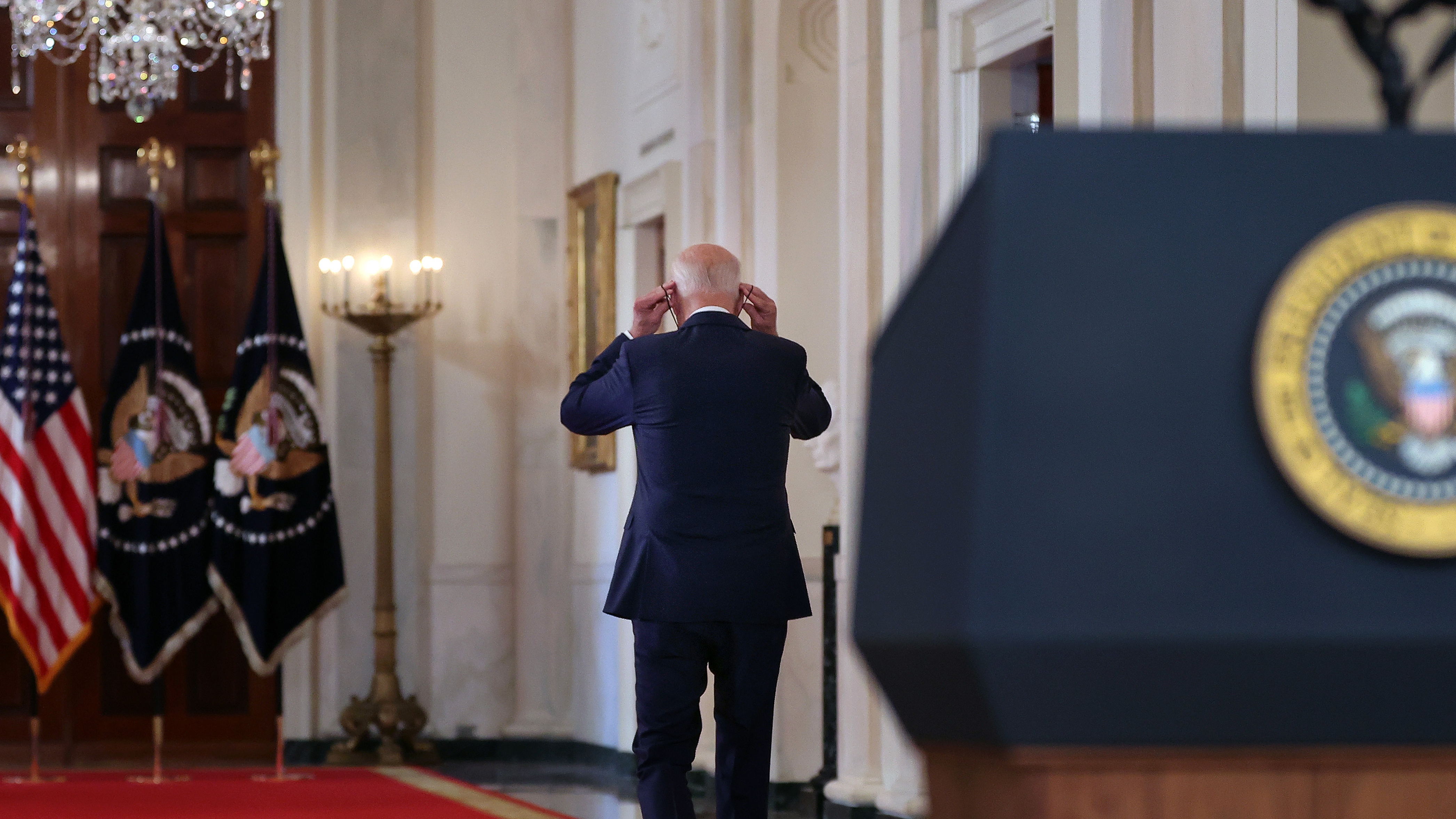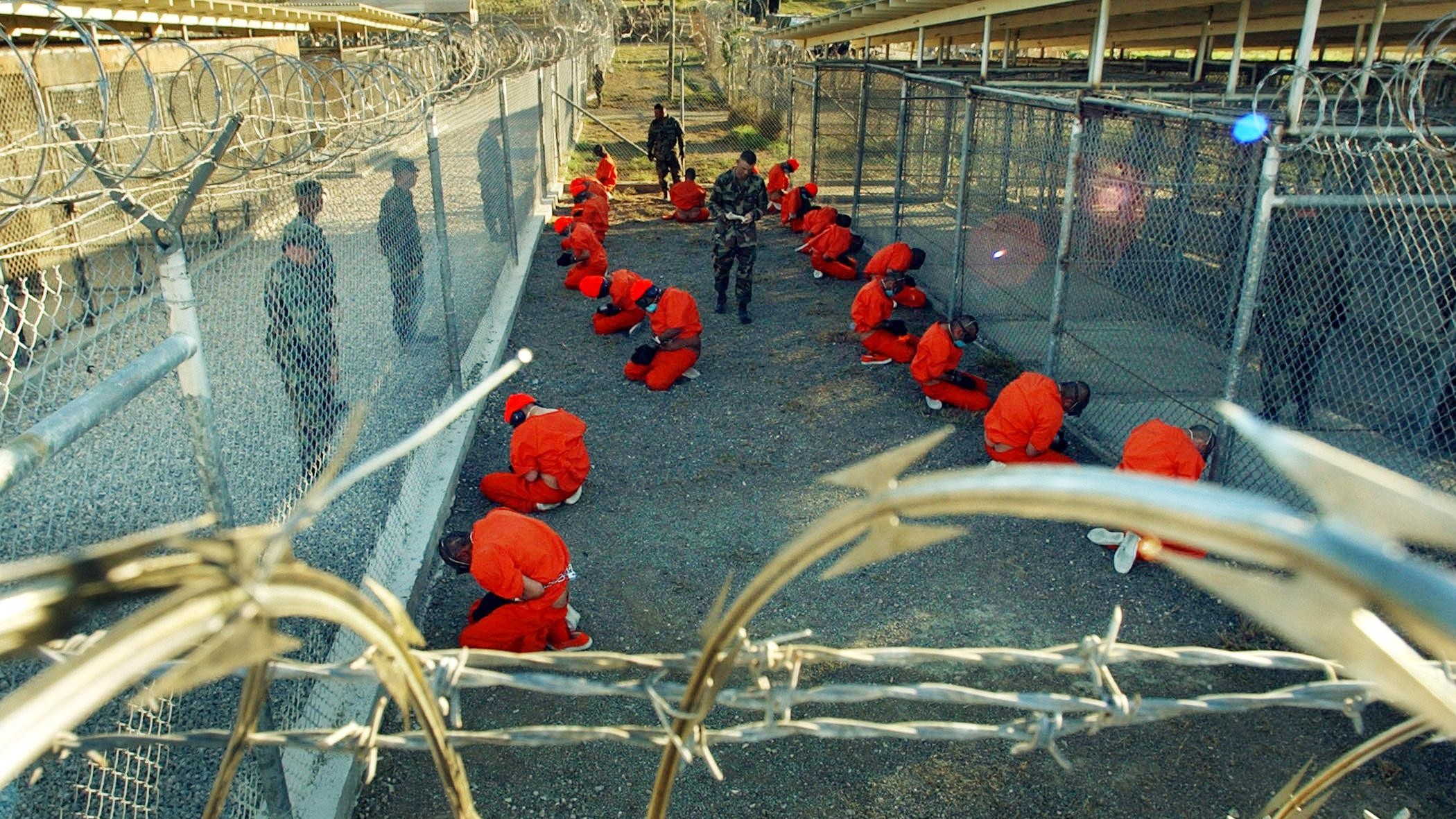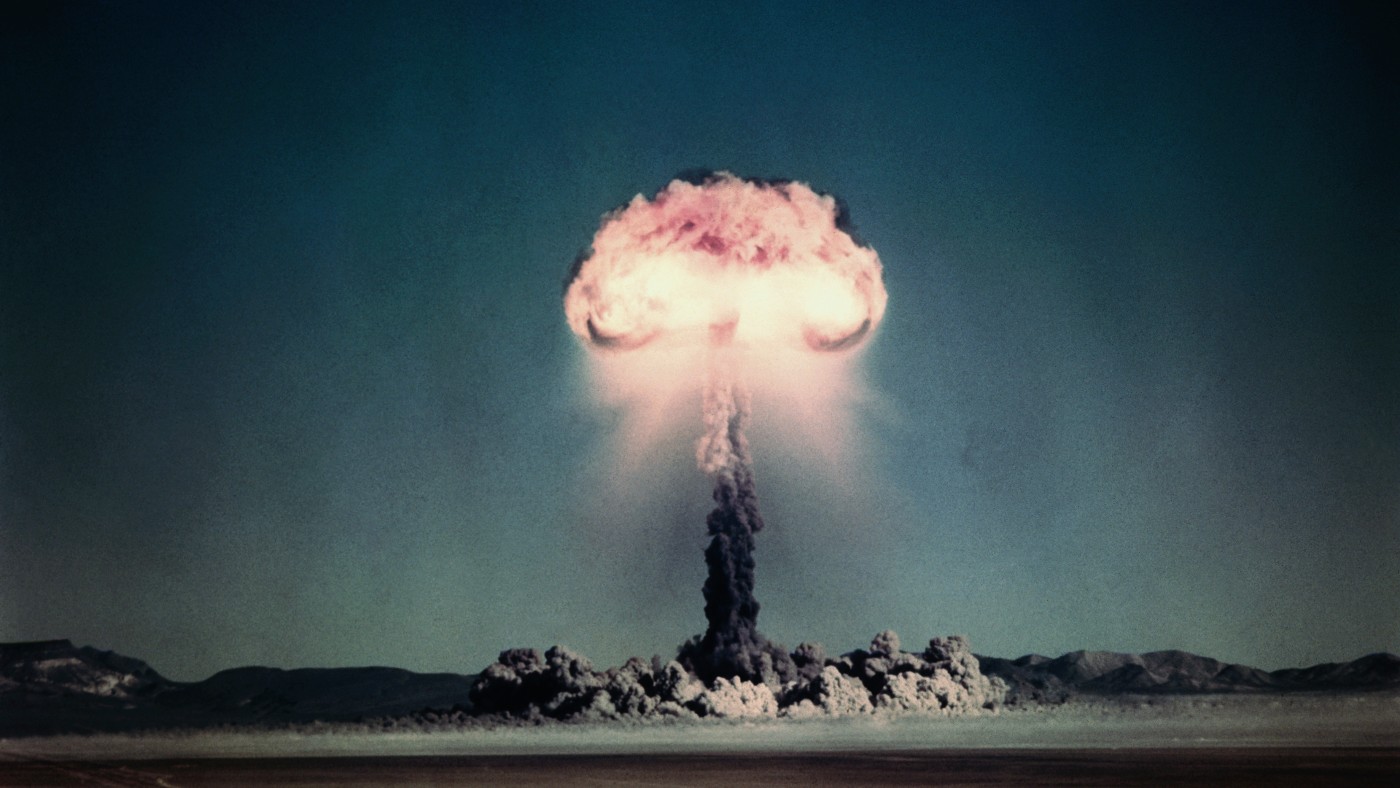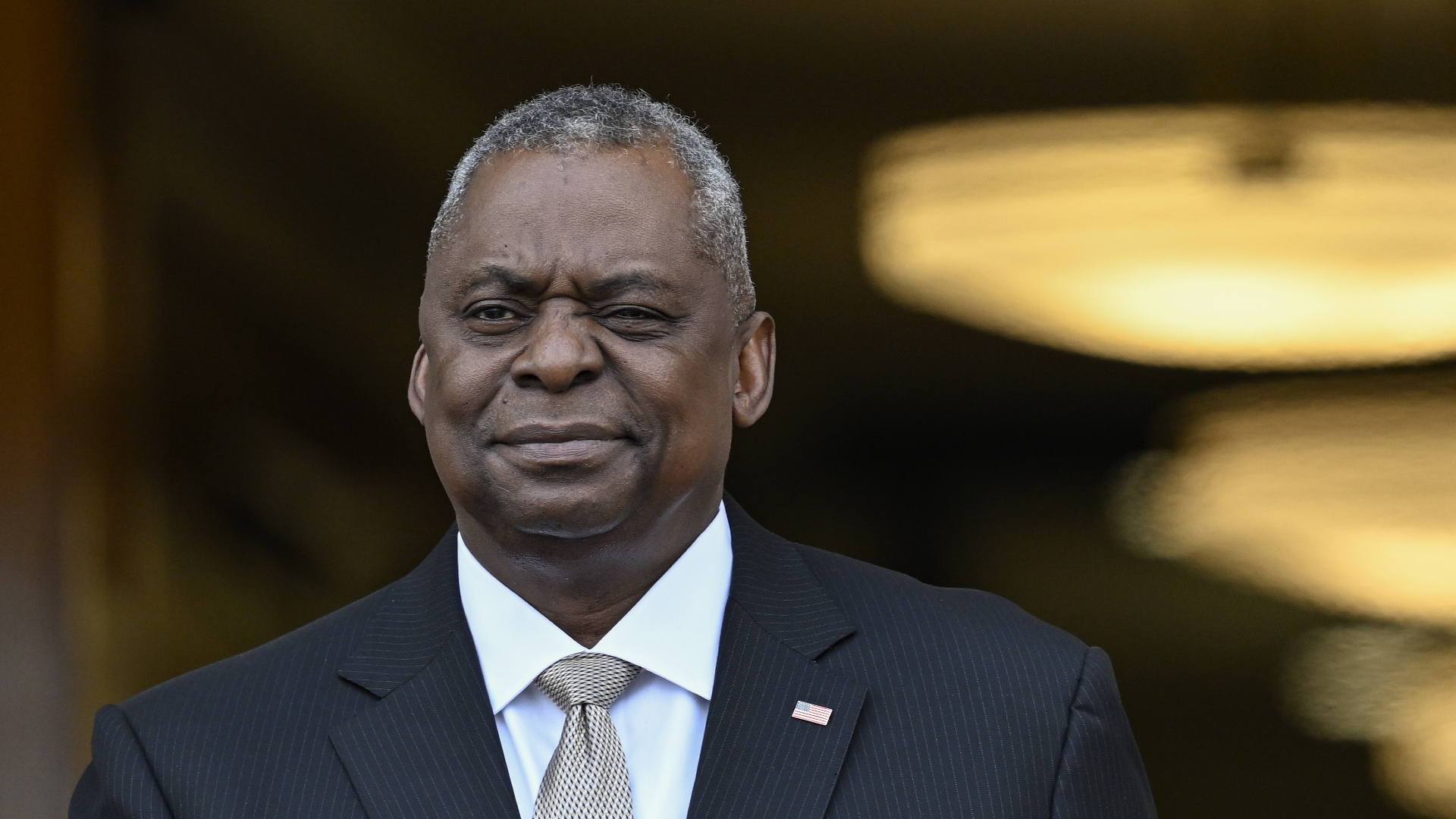Does humiliation in Afghanistan mark the end of the ‘American century’?
Joe Biden describes withdrawal as an end to efforts to ‘remake other countries’

A free daily email with the biggest news stories of the day – and the best features from TheWeek.com
You are now subscribed
Your newsletter sign-up was successful
The departure of troops from Afghanistan marks the end of the era of “remaking” nations, Joe Biden has said, in a speech calling for a new approach to US foreign policy.
Speaking from the White House, the president said that the US must “turn the page on the foreign policy that has guided our nation for the last two decades” and “learn from our mistakes”, adding: “To me, there are two that are paramount.
“First, we must set missions with clear, achievable goals, not ones we will never reach,” he continued. “And, second, we must stay clearly focused on the fundamental national security interest of the United States of America.”
The Week
Escape your echo chamber. Get the facts behind the news, plus analysis from multiple perspectives.

Sign up for The Week's Free Newsletters
From our morning news briefing to a weekly Good News Newsletter, get the best of The Week delivered directly to your inbox.
From our morning news briefing to a weekly Good News Newsletter, get the best of The Week delivered directly to your inbox.
Commentators have described the speech as a new “Biden doctrine”, one that marks a dramatic shift from what The Telegraph described as the US’s role as “the world’s policeman”.
End of an era?
Biden has long advocated withdrawing US troops from the Middle East and was a prominent supporter for reducing the number of soldiers on active duty while serving as Barack Obama’s vice president between 2009 and 2017.
Addressing reporters yesterday, he expanded on that position, describing the removal of troops on the ground in Afghanistan as the end of an “era of major military operations to remake other countries”.
A free daily email with the biggest news stories of the day – and the best features from TheWeek.com
“We’ve been a nation too long at war. It was time to be honest with the American people again. We no longer had a clear purpose. I take responsibility for the decision,” he said. “To those asking for a third decade of war, I ask: What is the vital national interest?
“It was time to end this war. This is a new world. It was a wise decision and the best decision for America. This decision about Afghanistan is not just about Afghanistan. It’s about ending an era of major military operations to remake other countries.
“I was not going to extend this forever war, and I was not extending a forever exit.”
The speech looked to define “a new era in US foreign policy”, The Guardian said, one that “relies less on military muscle” and instead looks to “turn the page” on the US role abroad, “pointing to a less interventionist future”.
The Telegraph noted that “many of the US interventions since the Second World War would arguably have failed Biden’s tests”, for example US military engagement in Vietnam, Libya, Iraq and Somalia. Biden’s comments represent “a departure from American foreign policy since 1945 and struck a warning for allies reliant on US help”, the paper added.
‘The American century’
The “American century” was a term coined by Time publisher Henry Luce in the 1940s to describe the role the US would and should take up during the 20th century.
Calling on the US to intervene in the Second World War in order to preserve democratic values, Luce wrote that “all of us are called, each to his own measure of capacity, and each in the widest horizon of his vision, to create the first great American century”.
What followed was half a century of US dominance in global politics, defined by economic influence, foreign intervention and cultural power.
But the departure of US troops from Afghanistan has revealed “two Americas”, ABC’s Stan Grant has said, with questions over where the power now lies “swirling” as the “slow unravelling” of the country’s role in the world gains pace.
The US is currently estimated to have “hundreds of bases in more than 70 countries” and “as many as 200,000 active service members deployed throughout the world”, Grant added, suggesting “that’s the cost of empire”.
But American intervention in the late 20th and 21st centuries has been marked by wars in which the US has been “fought to a standstill at best and defeated at worst”.
Writing on Al Jazeera, Pakistani columnist Zalan Khan said that “the American appetite for entering into conflict to preserve global dominance seems to be abating”, adding that “few have reflected on what the events in Afghanistan say about America, the retreating superpower, and its increasing inability to decide global matters”.
With Biden’s speech outlining the future of US foreign policy, the evacuation of Afghanistan appears to suggest some “significant shifts in global geopolitical dynamics”, he added, namely that there is a “growing American aversion to global dominance”.
US allies around the world have noted the shift in rhetoric, with former Australian Prime Minister Tony Abbott telling Sky News that the global order is “fading into the Asian century”, a phrase used to describe the growing influence of China on global affairs.
The Economist described the withdrawal as a “shock that rings around the world”, noting that Andrew Yang, a former Taiwanese defence minister, also suggested that the end of the occupation also matters to Taiwan, a key ally of the US in Asia.
“That is a lesson to learn,” Yang said. “Taiwan should depend on its own self-defences instead of US support.”
The Guardian’s diplomatic editor Julian Borger said that the question now remains that if Afghanistan “marks the end of American interventionism, what will take its place?”.
Echoing The Telegraph, Borger continued that the 20th and 21st centuries have been defined by “an era in which the US was supposed to act as the world’s policeman, maintaining order according to a fixed set of rules, and stepping in when necessary to stop the worst crimes against humanity”.
“The reality often turned out to be far short of that ideal, but is the whole project, in theory and practice, now coming to an end?”, he added.
“The speed and totality of the defeat at the end of the longest war in US history inevitably raises questions about its place in the broader sweep of modern history. And the biggest question perhaps is whether these scenes mark the last throes of the American century.”
-
 5 calamitous cartoons about the Washington Post layoffs
5 calamitous cartoons about the Washington Post layoffsCartoons Artists take on a new chapter in journalism, democracy in darkness, and more
-
 Political cartoons for February 14
Political cartoons for February 14Cartoons Saturday's political cartoons include a Valentine's grift, Hillary on the hook, and more
-
 Tourangelle-style pork with prunes recipe
Tourangelle-style pork with prunes recipeThe Week Recommends This traditional, rustic dish is a French classic
-
 Operation Rubific: the government's secret Afghan relocation scheme
Operation Rubific: the government's secret Afghan relocation schemeThe Explainer Massive data leak a 'national embarrassment' that has ended up costing taxpayer billions
-
 Will Iran's attack on Israel backfire?
Will Iran's attack on Israel backfire?Today's Big Question The unprecedented targeting of Israel could be a 'godsend' for Netanyahu as the limits of Tehran's military power are exposed
-
 Will Iran risk all-out war with Israel?
Will Iran risk all-out war with Israel?Today's Big Question Tehran has not wanted to be directly involved in the Middle East conflict so far. But that could be about to change
-
 A history of Guantánamo Bay
A history of Guantánamo BayThe Explainer War of Terror's 'symbol of torture, rendition and indefinite detention' is subject of new Serial podcast series
-
 'Humanitarian islands': how will Israel's plan for Rafah civilians work?
'Humanitarian islands': how will Israel's plan for Rafah civilians work?Today's Big Question Designated zones in central Gaza to provide temporary housing, food and water for more than a million displaced Palestinians
-
 How likely is an accidental nuclear incident?
How likely is an accidental nuclear incident?The Explainer Artificial intelligence, secret enemy tests or false alarms could trigger inadvertent launch or detonation
-
 Pentagon struggles to explain Defense Secretary Lloyd Austin's secret hospitalization
Pentagon struggles to explain Defense Secretary Lloyd Austin's secret hospitalizationSpeed Read The intensely private Pentagon chief kept even President Joe Biden in the dark about his illness for 3 days
-
 Israel-Hamas: what do both sides need in order to agree a sustainable ceasefire?
Israel-Hamas: what do both sides need in order to agree a sustainable ceasefire?Today's Big Question Israel and Hamas 'open' to renewed ceasefire and hostage release, as pressure mounts on Benjamin Netanyahu at home and abroad